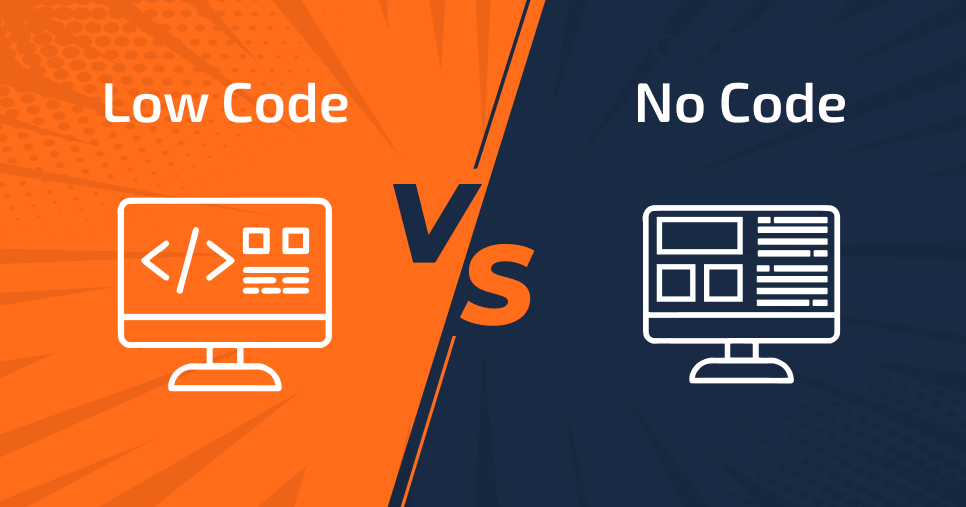Smart contracts have emerged as a transformative technology with the potential to revolutionize various industries, and one area where their impact is particularly promising is supply chain management. Supply chains are intricate networks that consist of numerous stakeholders, transactions, and exchanges of data. However, traditional supply chain processes often suffer from challenges such as a lack of transparency, manual paperwork, inefficiencies, and trust issues. Smart contracts, built on blockchain technology, offer a compelling solution to address these challenges and unlock new opportunities for the future of supply chain smart contracts. Smart contracts have the potential to play a pivotal role in transforming supply chain management as we know it. In this article, we will explore how smart contracts could revolutionize supply chains and the key benefits and challenges they bring.
Smart contracts are changing the face of the supply chain
In the past, supply chains were relatively simple, with resources from mines and farms being utilized by skilled craftsmen to create and sell finished products. However, modern-day supply chains have evolved into intricate and complex networks that are often fragmented and difficult to comprehend. Fortunately, the emergence of smart contracts presents an opportunity to simplify and enhance supply chain management. By leveraging the power of smart contracts, the intricacies of supply chains can be streamlined, leading to increased transparency and efficiency.
The ability to achieve complete visibility of a product's supply chain can have a profound impact on companies. It empowers them to gain insights into the sourcing of parts, the companies involved in the production process, and the movement of the product throughout the entire supply chain. This level of visibility enables companies to have a comprehensive understanding of their supply chain operations and fosters stronger partnerships among stakeholders. The concept revolves around establishing a unified source of information on a global ledger, where each component within the smart contract for the supply chain has its own entry on the blockchain. This enables real-time tracking, and authorized parties can continually update the status of each component, creating a transparent and traceable record of its journey.
Advantages of Smart Contracts in supply chain
Enhanced transparency is a key benefit offered by smart contracts in supply chain management. Utilizing blockchain technology, smart contracts enable the recording of all transactions and agreements on a decentralized and immutable ledger. This facilitates real-time access to accurate information for all supply chain participants, fostering greater visibility and trust. By leveraging smart contracts, stakeholders such as retailers can effortlessly trace the product's origin, authenticate its legitimacy, and ensure that it adheres to the prescribed standards at each stage of the supply chain. This increased transparency contributes to the overall integrity and reliability of the supply chain ecosystem.
Another benefit of smart contracts in supply chain management is the Automation of various processes, resulting in enhanced efficiency and cost reduction. By incorporating predefined conditions, smart contracts can execute actions automatically, eliminating the need for manual intervention and minimizing the risk of human error. For instance, a smart contract can be designed to initiate payment to a supplier once the delivery has been verified, bypassing the need for manual processing and verification. This automated approach not only saves valuable time but also optimizes resource allocation, streamlining operations and reducing costs associated with manual labour.
Smart contracts provide Enhanced security in supply chain management, complementing transparency and automation. Through the decentralized nature of blockchain technology, data stored on the network becomes highly resilient against tampering and hacking attempts. Moreover, cryptographic signatures are utilized to verify the authenticity and integrity of transactions, creating a robust defence against manipulation by malicious actors. This enhanced security helps thwart fraudulent activities within the supply chain, safeguarding the interests of businesses and consumers alike. Leveraging smart contracts for supply chain participants can establish a more secure ecosystem that inspires trust and mitigates the risks associated with fraud.
Challenges of Smart Contracts in Supply chain management

- Integration with existing systems:
Many supply chain management systems are already in place, and integrating smart contracts into these systems can be complex. Smart contracts need to interact with various stakeholders, databases, and legacy systems, requiring careful planning and implementation to ensure seamless integration. - Standardization:
The lack of standardized protocols and formats across different supply chain networks can hinder the effective implementation of smart contracts. Supply chains involve multiple parties, each with their own systems and processes. Achieving consensus on standardization and interoperability is crucial for smart contract adoption and effectiveness. - Data reliability and accuracy:
Smart contracts rely heavily on data inputs to execute predefined actions. However, ensuring the accuracy and reliability of data from various sources is a challenge. Supply chain data can be prone to errors, inconsistencies, and tampering. Smart contracts in the supply chain need robust mechanisms to verify the integrity and authenticity of data sources to maintain trust and prevent fraudulent activities. - Immutability and flexibility:
Smart contracts are designed to be immutable, meaning they cannot be altered once deployed. While immutability ensures trust and transparency, it can pose challenges when amendments or updates are necessary due to changing business requirements or unforeseen circumstances. Balancing immutability and the need for flexibility is essential for efficient supply chain management. - Security vulnerabilities:
Smart contracts are built on blockchain technology, which is generally considered secure. However, vulnerabilities in the smart contract code or the underlying blockchain platform can be exploited by attackers. Security breaches can lead to financial losses, disruptions in the supply chain, and compromised data integrity. Regular security audits, code reviews, and robust cybersecurity measures are crucial to mitigate these risks. - Adoption and skill gaps:
Widespread adoption of smart contracts in supply chain management requires a significant shift in infrastructure and expertise. Organizations need to invest in educating stakeholders, training employees, and building the necessary technical capabilities to understand, develop, and implement smart contracts effectively.
How Smart contracts can be utilized in supply chain management
Here are a few ways smart contracts can be utilized in supply chain management:
- Tracking and Traceability:
Smart contracts can be used to track and record the movement of goods along the supply chain. Each time a product changes hands or location, the smart contract can update the information on the blockchain, creating an immutable and transparent audit trail. This ensures accountability and helps identify and address any issues or delays promptly. - Automated Payments:
With smart contracts, payment terms and conditions can be programmed directly into the contract. When specific milestones or conditions are met, such as successful delivery or verification of product quality, the smart contract can automatically trigger payment transfers between parties. This reduces reliance on manual invoicing and eliminates the need for intermediaries, speeding up the payment process and reducing costs. - Compliance and Certifications:
Smart contracts can be used to enforce compliance with regulations, standards, and certifications throughout the supply chain. The contract can contain rules and requirements for each stage of the process, and the system can automatically validate compliance based on predefined criteria. Smart contract for supply chain helps ensure that products meet quality standards, regulatory requirements, and ethical sourcing practices. - Dispute Resolution:
In case of disputes or discrepancies, smart contracts can provide an efficient and transparent mechanism for resolution. The contract can include predefined dispute resolution processes, such as arbitration or mediation, which can be automatically initiated when triggered by specific events or conditions. This reduces the need for costly legal procedures and minimizes delays in resolving conflicts. - Inventory Management:
Smart contracts can facilitate real-time inventory management by automatically updating inventory levels as goods are received, sold, or transferred. When inventory reaches a certain threshold, the smart contract can trigger reorder requests, optimizing supply chain operations and minimizing stockouts or excess inventory.
The Future of Smart Contract in Supply chain management
Smart contracts have the potential to revolutionize supply chain management by bringing transparency, automation, and security to the forefront. As the future unfolds, smart contracts are set to play a pivotal role in shaping the supply chain landscape. By embracing this innovative technology, businesses can unlock new possibilities, streamline operations, and build resilient supply chain ecosystems that drive sustainable growth in the years to come. Smart contract supply chain example, a manufacturer creates a smart contract to track garment production, while the distributor utilizes the smart contract to manage inventory and facilitate efficient distribution.
The future of smart contracts in supply chain management holds great promise. However, as technology continues to advance, smart contracts have the potential to revolutionize supply chain operations, making them more efficient, transparent, and trustworthy.
Conclusion
The transformative potential of smart contracts in revolutionizing supply chain management processes is immense. Through the utilization of blockchain technology, smart contracts have the capability to greatly enhance transparency, efficiency, and security within the supply chain. This, in turn, can result in cost savings and enhanced customer satisfaction. As organizations delve deeper into exploring and implementing smart contracts, it is evident that they will play an increasingly significant role in shaping the future landscape of supply chain management.



















Author Bio
Sivabharathy
Lead Project Manager
Sivabharathy is a technical architect, technology enthusiast, and voracious reader. His visionary perspective has earned him opportunities to work with innovative projects in the computer software industry. He is an expert in PHP, JavaScript, NodeJS, Angular, Ethereum, Web3, Product Development, and Teamwork.